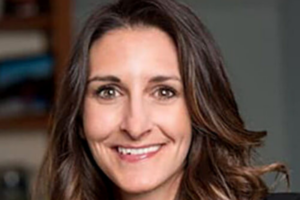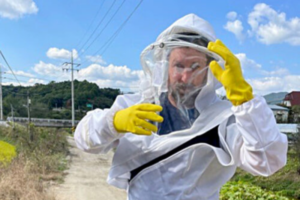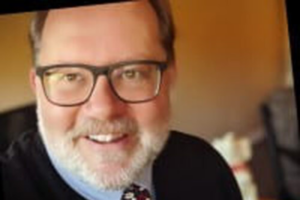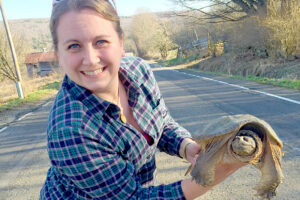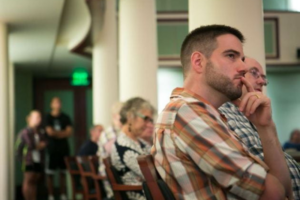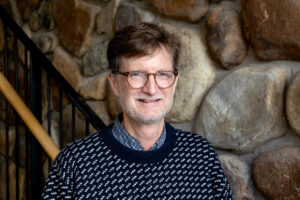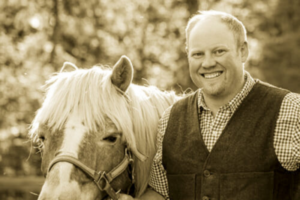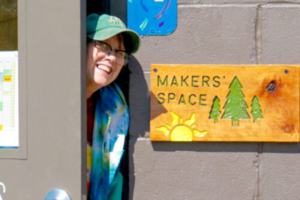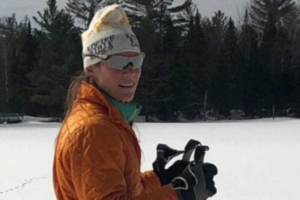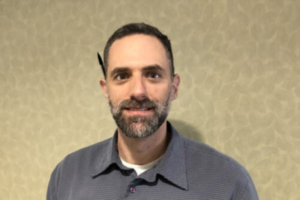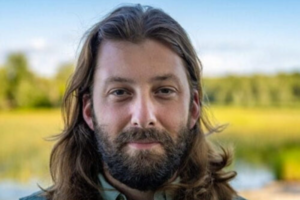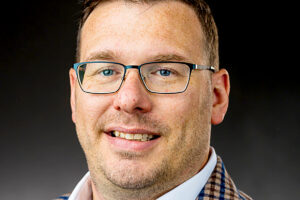Graduate Program Faculty
Kelly Cerialo
Kelly Cerialo Sustainable Tourism Management (MS) Ph.D. Leadership and Change, MS Communication Management Dr. Kelly L. Cerialo is an Associate Professor and Program Coordinator in the Business and Hospitality Department at Paul Smith’s College. She is the Co-chair of the UNESCO Champlain-Adirondack Biosphere Network, and founder/focal point for the U.S. Biosphere Reserve Youth Network. She coordinates international student exchanges with a focus on sustainable tourism and community development in UNESCO Biosphere Reserves in Italy and South Africa. She is the co-founder of the Adirondack to Appennino Sustainable Parks and Communities Project- an international sustainable tourism initiative between the Appennino Tosco-Emiliano Biosphere Reserve in Italy and the Champlain-Adirondack Biosphere Reserve. Kelly received the David H. Chamberlain Excellence in Teaching Award in 2019 and Faculty Member of the Year at Paul Smith’s College in 2018. Kelly has presented at United Nations and UNESCO conference in the U.S., Europe, and Africa. Research interests include the social impacts of tourism in protected areas, tourism in UNESCO Biosphere Reserves, UNESCO Biosphere Reserves governance and management, recreation overuse, youth leadership mentoring in sustainable communities, and cross-cultural communication.
Shawn Cleveland
Shawn Cleveland is a new Associate Professor in the Graduate School program, focusing on Natural Resources. Cleveland will be teaching mostly remote from his hometown of Missoula, Montana, but will be on campus for residencies. Cleveland earned his undergraduate and graduate degrees down the road from his home at the University of Montana, and completed his PhD at SUNY ESF. At ESF, he had the opportunity for a TA position, but ended being hired as faculty and taught at ESF’s Ranger School in Wanakena, NY for five years. Cleveland later moved on to Olympia, Washington, as his wife got a job there. He taught at Pacific Lutheran University, and it was there that he got his start with the “murder hornets.” Murder Hornets—Northern Giant Hornets (Vespa mandarinia)—are the world’s largest wasps. “Murder hornet” is commonly used, but not quite accurate. They don’t actively hunt humans, but they can kill if they feel threatened. Murder hornets were first seen in Vancouver, British Columbia in August 2019 and appeared in the U.S. in December 2019, near Blaine, Washington. When the murder hornets arrived in Washington, he used his wildlife knowledge to teach Washington State Department of Agriculture entomologist Chris Looney and his team to find the initial nest using radio tags and radio telemetry triangulation methods. “The concern was: where should we be looking,” Cleveland says. He pitched an idea to study their behavior, figure out what resources they are using, evaluate the landscape and research the genetics, in other words “hornet profiling.” He shared this idea with Looney who, after six months, came into the brewery Cleveland was pouring pints in and says “We’re going to South Korea!” After securing funding, Cleveland went to South Korea, working with Cellular Tracking Technologies, to improve tag design for further research and monitoring. The solar-powered, Bluetooth-enabled BluMorpho tags weigh 0.05g and locate the hornets every 5-10 seconds. “These very light transmitters pushed the technological side to better understand eradication opportunities,” Cleveland explains. Hornets do serve purposes other than “murder.” “Hornets are infused in soju (rice wine), for about nine years, the exoskeletons are extracted from the mix and it creates a great-tasting drink!” Cleveland adds. Cleveland’s family is involved in natural resource studies. He is the father of three, ranging in age from high school senior to six-month-old. And, his wife is the program director for the Western Dry Forest and Fire Program for the Nature Conservancy. Cleveland is featured in the Fall 2024 issue of Paul Smith's Magazine: "Murder, He Wrote."
Joe Conto
Joe Conto Sustainable Tourism Management (MS) MS, Hospitality Management Joe Conto’s academic mission is to connect students with the broad scope of the hospitality industry through academics, practical experiences and networking opportunities. He oversees the Hospitality, Resort & Tourism Management Program at this institution in the heart of the Adirondack Mountains of Northern New York state. Paul Smith’s College has been in the business of Hospitality Management instruction for over 60 years.
Val Titus
PhD Biological Sciences: Ecology, Evolution and Behavior, MS Wildlife Science, Instructor of Ecosystem Services and Sustainable Development. Dr. Titus is an Associate Professor of Natural Resources Conservation and Management and Wildlife Science at Paul Smith’s College. She serves as the NRCM Program Coordinator, advisor to the Paul Smith’s College Student Chapter of The Wildlife Society, and advisor to Paul Smith’s College's Fish and Game Club. She is a conservation biologist with a focus on wildlife ecology, particularly amphibians and reptiles (though the occasional feathery or fuzzy creature works its way into her work). She has conducted extensive research on species conservation, habitat management, and environmental education. Dr. Titus has a strong background in fieldwork and community engagement, working to bridge the gap between science and public awareness of ecological issues. She is also an advocate for diversity in STEM fields, mentoring young scientists and promoting inclusivity in environmental sciences. Her work often addresses the impacts of habitat loss on vulnerable species. Val has been an active member of The Wildlife Society, Partners in Amphibian and Reptile Conservation, and Back Country Hunters and Anglers and has served in many capacities for each organization. She lives just down the road from Paul Smith’s College with her family and is living the Adirondack dream!
Joe Henderson
Joe Henderson Natural Resources Conservation (MS) Ph.D. in Teaching & Curriculum, Instructor of Sustainable Development and Strategic Communication Dr. Joseph Henderson is a member of the Graduate Faculty and the Department of Environment and Society at Paul Smith’s College. He earned Ph.D. and M.S. degrees from the University of Rochester, and a B.A. from Colgate University. He’s trained in the environmental social sciences broadly, and as an anthropologist of environmental education in particular. His scholarship investigates how sociocultural, political and geographic factors influence teaching and learning in emerging energy and climate systems, and he is especially interested in how humans use political ideology to shape ecological conditions. He is an editorial board member at the Adirondack Journal of Environmental Studies and the Journal of Environmental Studies and Sciences. In 2020 he co-edited a collection of chapters on climate change education in his book Teaching Climate Change in the United States. He lives in Saranac Lake with his family where he is an elected member of the Saranac Lake Central School District Board of Education.
Eric Holmlund
Eric Holmlund Natural Resources Conservation (MS) Sustainable Tourism Management (MS) Ph.D. in Environmental Studies, Director of Graduate Studies, Instructor of Environmental Ethics. Dr. Eric Holmlund is a member of the Graduate Faculty and Department of Environment and Society at Paul Smith’s College. He holds a Ph.D. in Environmental Studies from Antioch University New England, a M.S. in Teaching from SUNY Potsdam, a M.S. Ed. in Outdoor Recreation from Southern Illinois University and a B.A. in English from Dartmouth College. From 2000 to 2019, Eric founded and directed the Adirondack Watershed Institute Stewardship Program, which is New York State’s largest aquatic invasive species spread prevention and education program dedicated to protecting the natural heritage of Adirondack rivers, ponds and lakes. Since 2014, Eric has co-directed a collaboration between Paul Smith’s College and the Tosco-Emiliano Biosphere Reserve in northern Italy focused on sustainable tourism and community identity. He has served as a wilderness recreation leadership instructor for Outward Bound and the Wilderness Education Association. He is a steering committee member of the Paul Smith’s College Global Center for Rural Communities and the Champlain Adirondack Biosphere Network (UNESCO Man and Biosphere Program).
Brett McLeod
Brett McLeod Natural Resources Conservation (MS) Ph.D. in Environmental Studies, Chair of Forestry Department, Instructor of Ecosystem Processes and Services. Dr. Brett McLeod is the International Paper Endowed Chair of Forest Resource Economics. McLeod’s belief that humans have the capacity to design and perpetuate durable, sustainable communities fuels his professional work. His accomplishments include US-AID-sponsored rural community development in the Dominican Republic, citizen science ecotourism development in Southeast Alaska, and the promotion of forestry and sustainable agriculture in the Adirondack-North Country of New York. McLeod and his wife live on a 30-acre Adirondack homestead that produces grass-fed beef, pork, chicken, maple syrup, medicinal plants, produce, and lumber which is documented in his book, The Woodland Homestead: How to Make York Land More Productive and Live More Self-Sufficiently in the Woods (Sorey Publishing, 2015).
Deb Naybor
Deb Naybor is an assistant professor of Environmental Studies and Sustainability at Paul Smith’s College. Her PhD from the SUNY Buffalo is in Geography and is a proud of alumni from Paul Smith’s with a degree in Forestry. For more than 30 years she ran her own land surveying and land management company in Western New York, and was named one of the top women business owners in America by the US Small Business Administration. In 2004, she started her own small nonprofit organization and volunteered to set up small economic development programs in 18 countries in Asia and Africa. Deb’s research interests include sustainable housing and the impact of land rights on natural resource management. With an interest in global sustainability and use of natural resources, Deb has taken Paul Smith’s students to India, Africa and Iceland in order to study a wide range of human and environmental interaction. She is a tiny house advocate, teaches tiny house design and has worked with students to design and build micro-campers, lean-tos and a cordwood cottage as part of their senior capstone projects.
Becky Sutter
Becky Sutter Natural Resources Conservation (MS) Instructor of Contemporary Water Law, Policy & Regulation. Rebecca Sutter is a proud Smitty from the class of 1997 who now teaches in the Department of Environment and Society. Rebecca received her Professional Certification in Sustainable Water Management from Columbia University, PC in Technology and Course Design from the University of Maryland, MST in Education from SUNY Potsdam and BS Natural Resource Policy/Hydrology from SUNY ESF. She started her career in the Paul Smith's College Forestry Department under the guidance of mentors Dr. Michael Rechlin and Dr. Michael Kudish; both of whom had a major influence on her teaching. Rebecca has developed curriculum in the math department and teaches statistics. Rebecca set the ball in motion for the Disaster Management and Response program by designing curriculum based on the current critical shortages faced in the fields of Sustainability and Emergency Management. Her research includes post disaster community resilience and rural community response to climate stresses effecting the global hydrological cycle. She lives her dream on three acres in the Adirondacks where she raises summer foods, stacks a lot wood and collects canoes.
Brendan Wiltse
Brendan Wiltse Natural Resources Conservation (MS) Ph.D. in Limnology, Visiting Assistant Professor, Executive Director of the Adirondack Watershed Institute. Brendan is a Visiting Assistant Professor at Paul Smith’s College and serves as Executive Director at the Paul Smith’s College Adirondack Watershed Institute (PSC AWI). He holds a Ph.D. in limnology from Queen’s University and a B.Sc. in field biology from Paul Smith’s College. Brendan has a broad range of interests in the field of limnology. He has a strong background in paleolimnological approaches, specifically looking at the historical response of lakes at the Experimental Lakes Area to recent climate change. He has also published work on millennial-scale climate variability across eastern North America, as well as acid rain recovery in the Adirondacks. Recently, he has led research on road salt impacts on Mirror Lake in Lake Placid, NY, which contributed to forming a state-wide road salt reduction task force. Brendan has also built capacity for environmental-DNA work at PSC AWI, working on regional projects to map native and non-native fishes’ distribution. Brendan’s career has focused on merging science, communication, and management to protect freshwater ecosystems. He is a Certified Lake Manager through the North American Lake Management Society, a national accreditation program for lake professionals. Wiltse also has a keen interest in conservation photography. His work has been published in regional and national magazines. Recently, he worked with Northeast Wilderness Trust on a project that raised more than one million dollars to purchase the Eagle Mountain Preserve in the eastern Adirondacks. Brendan serves as the Vice President of The Waterman Fund, Associate Director of the Adirondack Lakes Alliance, and a board member of the Northern Forest Atlas Project.
Chris Sheach
Chris Sheach, CEM®, MA is an assistant professor of Disaster Management and Response at Paul Smith’s College, in the Adirondacks of NY. Born in Canada, Chris has spent more than half his life abroad, travelled to 36 countries and living in Indonesia, Tanzania, Vietnam, and Mozambique. Building on an undergraduate degree in Intercultural Studies (Houghton University, NY), Chris earned a Master of Arts in Disaster & Emergency Management (Royal Roads University, British Columbia) and is a PhD candidate in Fire and Emergency Management Administration (Oklahoma State University). He is a certified EMT and a volunteer firefighter. Before teaching full time, Chris worked for 15 years in international disaster response and recovery. He operated in several combat zones and led teams in the aftermath of natural disasters including tsunami, volcanoes, hurricanes, and earthquakes. During his career, Chris has served on global committees and advisory panels for food security, emergency shelter, disaster technology and clean energy and is a governing member of the International Association of Professionals in Humanitarian Assistance and Protection. Along the way, he has learned seven languages and picked up a love of soccer, spicy food and strong coffee.
